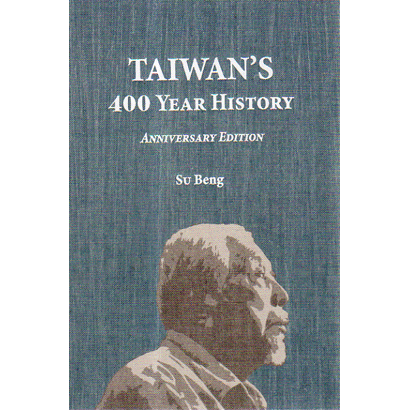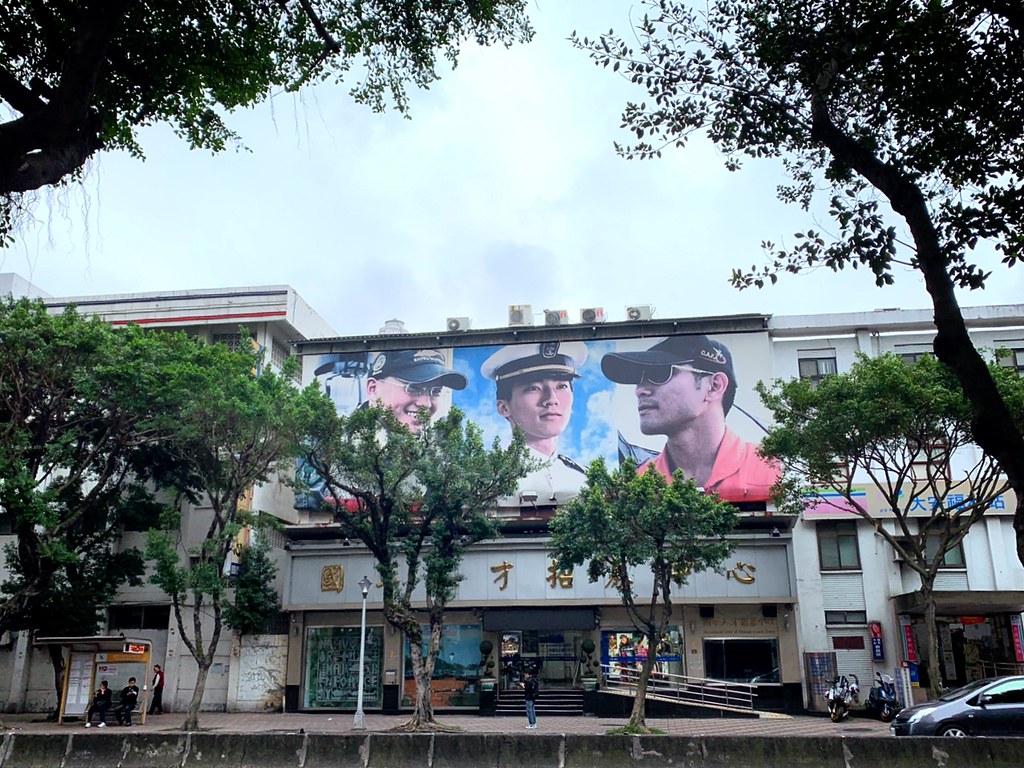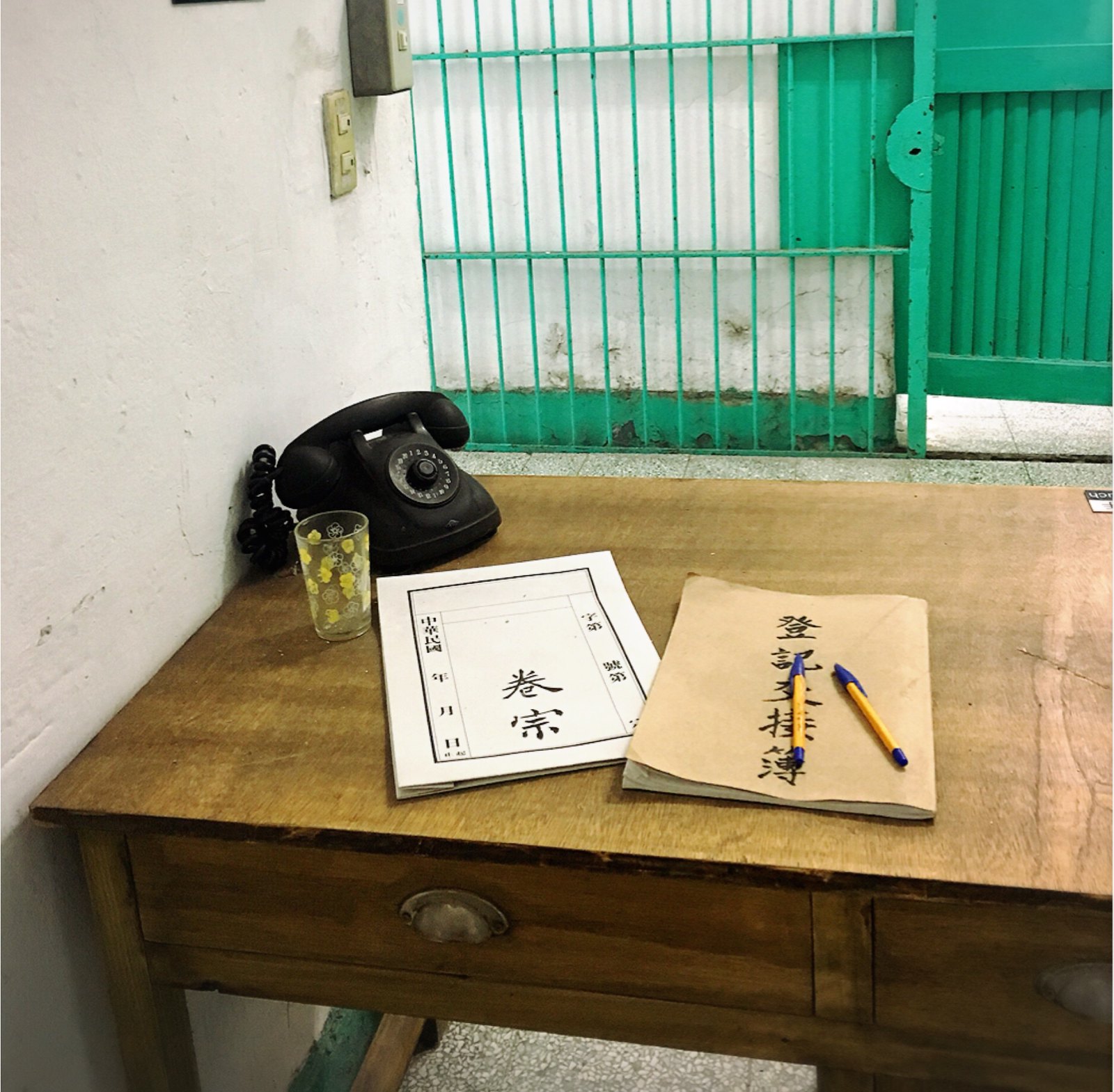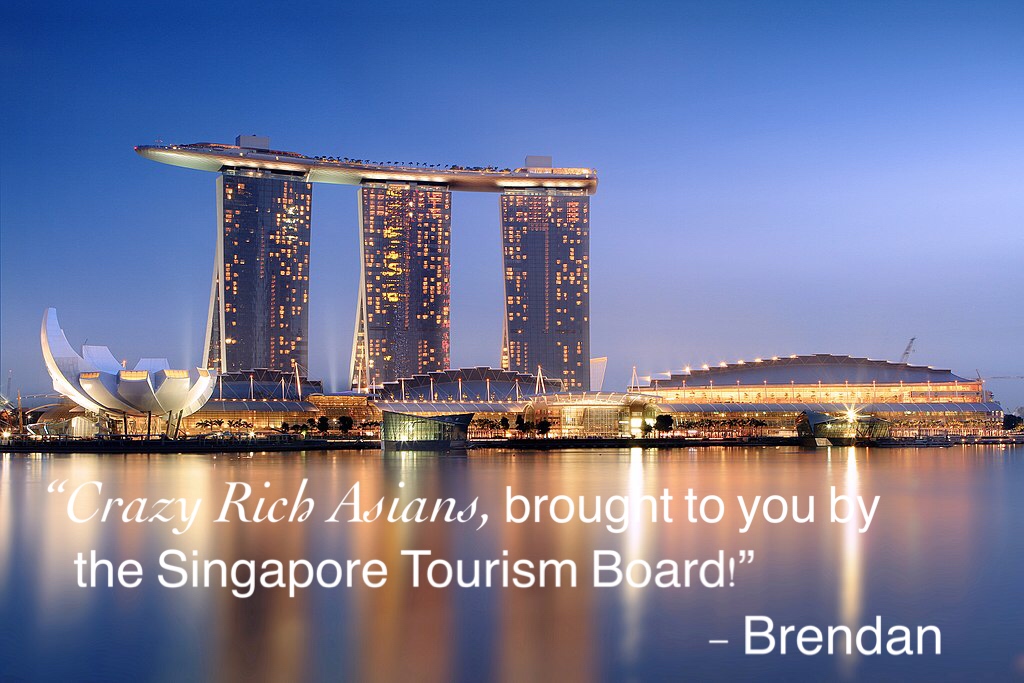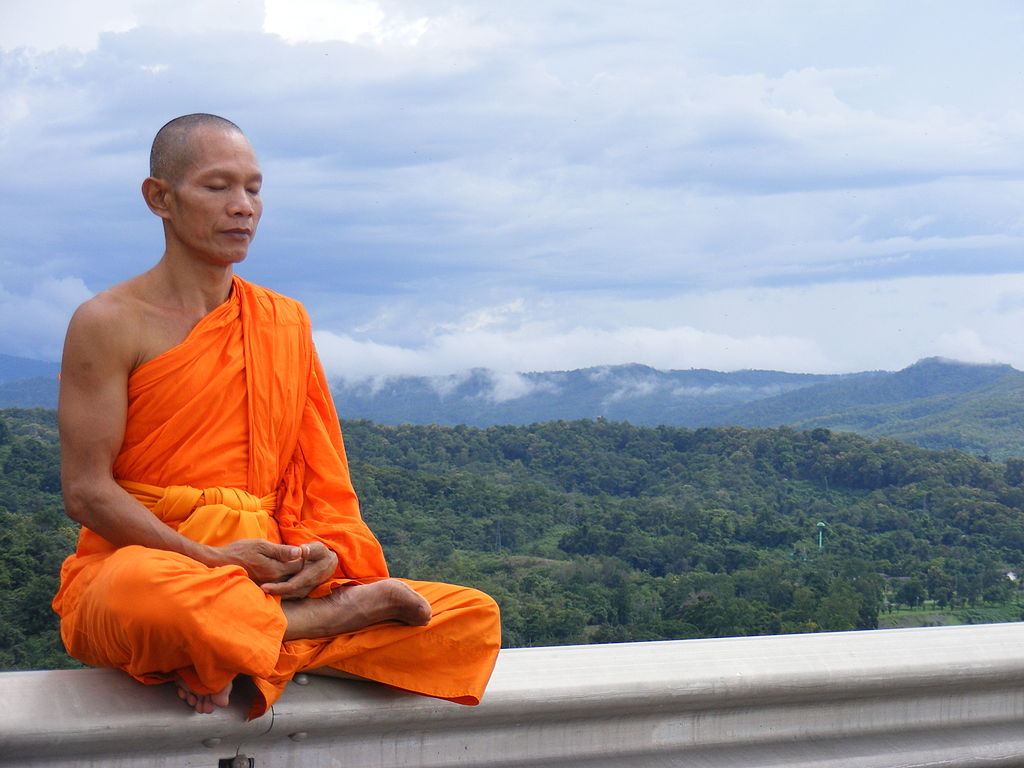In a spin-off of my last post, I wanted to talk some more about the ROC constitution.
In that post, I described Taiwan independence bait & switchers in that post: people who talk about Taiwanese sovereignty as though it doesn't already exist, but make those statements in relation to China, not in relation to any sort of discussion or debate happening in Taiwan. When it's pointed out that Taiwan is indeed independent of that China, they snottily retort that Taiwan claims to be the "Republic of China", and therefore isn't independent from...that?
Nevermind that they began by talking about the PRC, and the ROC and PRC are different governments regardless. Both governments fundamentally acknowledge this: Taiwan now openly states it, and the PRC talks about how "Taiwan will be ours", which is an admission that Taiwan is not currently theirs.
I mentioned then that a lot of these people will point to the Republic of China constitution, insisting that its wording proves that Taiwan considers itself "part of China", if not the "real China" which claims the territory currently governed by the PRC.
This is arguably false. I've talked about this before, but have more to discuss, and want to zoom in a little more. As Brendan likes to say, people who want you to swallow China's (or the KMT's) narrative on Taiwan don't want you to learn more about Taiwan. Their arguments work better if you remain ignorant. Those of us who advocate for Taiwan welcome everyone to learn more: the more you learn about Taiwan, the clearer it becomes that it isn't part of China, and doesn't want to be.
In the spirit of "learning more", I'll be drawing on a useful Twitter thread that deserves a more permanent discussion.
What are "existing territories"?
In the thread, Drew points out the oft-cited Article 4 which discusses the "borders of the Republic of China":
The territory of the Republic of China according to its existing national boundaries shall not be altered except by resolution of the National Assembly.
I've discussed this as well -- the article never clarifies exactly what the borders are, and that matters -- but Drew takes it further. He points out that the vagueness was intentional, as the boundaries at the time were indeed somewhat fluid and the language of the constitution had to account for that without any change potentially invalidating the document. That's not just his opinion: he's quoting the Council of Grand Justices:
Article 4 of the Constitution provides: "The territory of the Republic of China according to its existing national boundaries shall not be altered except by resolution of the National Assembly." Instead of enumerating the components of national territory, a general provision was adopted, and a special procedure for any change of national territory was concurrently provided. [Emphasis mine]. It is understandable that this legislative policy was based upon political and historical reasons.
A years-old Taipei Times piece offers a clearer interpretation of this fairly terse ruling:
First, Article 4 has been ruled “non-justiciable” by the Council of Grand Justices. Asked whether Mongolia was still a part of ROC territory, the council in 1993 issued Interpretation No. 328, which ruled that the legislative intent of the term “inherent/existing” was specifically to avoid setting down precise boundaries, since the areas controlled by the ROC in China at the time were continually shifting with the tides of the Chinese Civil War. The interpretation thus held that the phrase is a political question that cannot be assigned any fixed legal definition. The practical impact of this ruling is that it is legally impossible to “violate” Article 4, since anyone could assert any notion of “inherent/existing national boundaries.”
Essentially, "non-justiciable" means that the Council of Grand Justices has declined to rule on the meaning of Article 4, as the wording is intentionally vague, which is a fundamentally political issue. Thus, it can mean anything to just about anyone. Which, of course, indicates that it means just about nothing at all.
Article 4 is technically no longer in force, but the same wording ("existing national boundaries") is used in the updated additional article, so I'm applying these ideas to both. There's more to discuss here; it will come up again below.
In other words, the judiciary branch of the Republic of China refuses to enforce any legal interpretation of that article, including that it must include territory currently governed by the People's Republic. At this point, the government that currently runs Taiwan has not actively claimed "mainland China" for decades, and continues to decline to comment on any such claim.
And lest you think that this was some sort of partisan judge hack job: in an otherwise jibberish article, even the KMT praises the wisdom of this ruling! I suspect it was meant to be a bit of a smack at the DPP, who had sought to shed new light on what the constitution means to modern Taiwan by getting the judiciary branch to clarify the so-called territorial claims. However, it ended up being a boon to Taiwan advocates: if the wording of "existing national boundaries" is so vague and political that it cannot be meaningfully interpreted by the court, then it can't really be meaningfully be interpreted by anyone. Therefore, it is not meaningful.
Chen Shui-bian is quoted by the Financial Times (and here, the Mainland Affairs Council) pointing out that the question of dubious claims such as Outer Mongolia aren't even the point -- when the Republic of China was founded, Taiwan was a colony of Japan. A 1936 early draft of the constitution did not include Taiwan, which further shows that these "existing borders" are indeed malleable.
In addition to the Grand Justices, we've now had two presidents of the Republic of China who have insisted that it is an independent country and does not claim the territory of what the world considers to be "China". Three, if you count Lee Teng-hui and his "state to state relations" (and I do). Every elected leader of Taiwan except one has been clear on this. How many government officials clarifying this will it take before people stop making this dead-end argument?
Let's look at the last part of Article 4. I occasionally hear these "Checkmate, Splittists!" commentators say that this needs to be changed by a referendum, but that's not actually true.
The Additional Articles
The original article states that it can only be amended by the National Assembly, although the amended article, which dates from the early 2000s, gives that power to the Legislative Yuan. The National Assembly no longer exists, and hasn't since 2005, when the replacement article took effect.
As Bo Tedards pointed out all those years ago, from the Taipei Times link above:
Second, Article 4 is no longer in effect. It was replaced in 2000 by paragraph 5 of Additional Article 4, which itself was amended in 2005. Although Additional Article 4 contains almost the same phrase, “the territory of the Republic of China, defined by its existing national boundaries,” surely the use of the term “existing” in 2000 or 2005, without qualification, does not mean “existing as of 1947.”
For the sake of comprehensiveness, here's what that paragraph says:
The territory of the Republic of China, defined by its existing national boundaries, shall not be altered unless initiated upon the proposal of one-fourth of the total members of the Legislative Yuan, passed by at least three-fourths of the members present at a meeting attended by at least three-fourths of the total members of the Legislative Yuan, and sanctioned by electors in the free area of the Republic of China at a referendum held upon expiration of a six-month period of public announcement of the proposal, wherein the number of valid votes in favor exceeds one-half of the total number of electors.
Perhaps a few centenarians and some KMT diehards clung to this, but in 2005 most people in Taiwan identified as either purely Taiwanese or both Taiwanese and Chinese. Almost nobody believed themselves to be purely Chinese, a downward trend that began in the mid-1990s. There's no way the general electorate in 2005 still had some inherent notion that unification was desirable. Not even the pro-China Ma Ying-jeou, elected a few years later, dared to say otherwise at the time.
It's difficult, then, to disagree with Tedards. If the sentence "existing national boundaries" was written in 2005, and the Council of Grand Justices has already said it's a vague, political phrase that takes into account the possibility of changing boundaries, then the boundaries referenced in the 2005 replacement of Article 4 can only sensibly mean the Republic of China as it existed in 2005.
Why do the additional articles exist?
When the original additional articles went into effect, President Lee described the re-defined relationship with China as "state to state" or "special state-to-state" relations. Even China saw this move as a blatant shift toward "Taiwan independence". Here's a nice long turducken quote from my previous post on the topic (linked above):
This article is extremely biased to the point of affecting the quality of the scholarship, but it offers up a real quote from Lee and a taste of how angry China chose to be:
According to the transcript released by Taipei, Lee said that since 1991, when the ROC Constitution was amended, cross-strait relations had been defined as "state-to-state," or at least "a special state-to-state relationship." Cross-strait relations, he maintained, shall not be internal relations of "one China," in which it is a legal government vs. a rebel regime, or a central government vs. a local one. Lee's controversial statement, not even known beforehand by Su Chi, Chairman of Mainland Affairs Council (MAC), sent shock waves to Washington as well as Beijing. [Note: Su Chi is the same guy who fabricated the "1992 Consensus" well after 1992].
For Beijing, Lee Teng-hui's "two-state" theory was identical to the claims by Taiwan independence forces, that treated Taiwan and the mainland as two separate states. Lee had completely abandoned the unification guidelines of 1991, not even paying lip service to the one-China principle. The spokesman of the State Council's Taiwan Affairs Office criticized Lee for playing with fire....In Beijing's eyes, Lee had made an open and giant step towards independence. The "state-to-state relation" theory went beyond the limit of "creative ambiguity" around the one-China principle and represented a major shift towards de jure independence.
As Drew points out, Chen Shui-bian extended the "special state-to-state" theoretical framework, later calling the relationship with China "one country on each side". Although Ma Ying-jeou represented a break from this clear trajectory, Tsai brought it back into fashion, calling Taiwan "independent" (also linked above). In other words, since democratization there has been exactly one president of Taiwan who has conceived of Taiwan's relations with China as anything other than "state to state", and this framework is directly linked to the constitution as it existed after 1991.
Miscellany: Tibet, Mongolia and the Provincial Council
The ROC constitution tryhards don't give up easily; they'll often point to mentions of Tibet and Mongolia in the document. To that I say: so what? The Mongolian and Tibetan Affairs Commission was dissolved in 2017/2018, and most mentions of those old claims are either tied to rules regarding the National Assembly which no longer exists, or play no meaningful role in the current government.
The Provincial Council was also dissolved -- you need to use the Wayback Machine to access its old website. Because the constitution stipulates that something like the Provincial Council must exist, a government worker technically fills the lead role, but draws no additional salary. It exists in name only. That whole framework is a ghost, a shadow. It says a lot about the entire ROC-oriented framework of the document as a whole, frankly.
Cherry-picking these bits and pieces of the constitution to make the case that Taiwan actively claims "all of China" as the Republic of China actually makes your case weaker, because there's just so little there there.
Taiwan does not claim China, nor does it claim to be "the real China". It hasn't since the 1990s and that position has only been cemented in the 2000s. The constitution itself says this, if you bother to read it carefully. Only one elected president has ever paid it lip service, and he's hilariously unpopular.
The entire thing is a massive straw man: it's easy to argue against Taiwanese sovereignty even when one can't deny its de facto existence if one can point to a document and say, "hah, see? Even Taiwan agrees it's China!" But the document doesn't say that, at least not any longer, and few in Taiwan still believe it should.
To be honest, I don't think these constitutional truthers want what's best for Taiwan, nor are they interested in understanding or learning more about Taiwan. If they were, they'd know this already, or be open to hearing it.
So why not change the constitution?
Taiwan did change the ROC constitution -- that was what the additional articles were all about!
But, I see the point here, and I'll bite: why not amend the core document, rather than add to it? Why not abolish the vestiges of the Provincial Council? Why officially "delegate" responsibilities for these defunct assemblies to other government agencies, rather than change the document that states they must exist? The Legislative Yuan has that power, so why not do it?
I believe the Taiwanese electorate does mostly want this, but it's a deeply unfair question. Why indeed? If it can be done, and Taiwanese people would likely support it, it shouldn't be difficult to deduce the reason why it doesn't happen: not Chinese control, but Chinese threats.
Taiwan isn't controlled by China now, so changing it doesn't change China's power in Taiwan (that it has none). So why do it, when they're threatening to slaughter you?
Taiwan absolutely does not want a war, for exceedingly obvious reasons. We can all agree it would be a terrible outcome; the only entity who seems to want war is China. If Taiwan is already self-governing and doesn't need to specifically amend the constitution to maintain its sovereignty, and China has threatened to subjugate and annex Taiwan if it makes those changes, with millions of Taiwanese dying as a result, why would Taiwan do so?
Taiwan can and should make these necessary changes when China has resolved not to use force, not to invade, and to respect the wishes of its neighboring country. Until then, what purpose vis-à-vis the PRC would it serve, at such a terrible cost?
Insisting on constitutional amendments that don't change Taiwan's current sovereignty therefore doesn't make any sense, unless you're looking for a reason to blame Taiwan for China's actions. I suspect most of the ROC constitution truthers are doing just that.
It's that same old Catch-22: insisting that Taiwan cannot be "independent" until it makes declarations or constitutional amendments that may cause China to attack, but then blaming Taiwan for "provoking China" if it actually makes those declarations or amendments. There's no way to win, which is exactly what the anti-Taiwan, China-simping ROC constitution truthers want.
Don't listen to them. They don't know what they're talking about.





